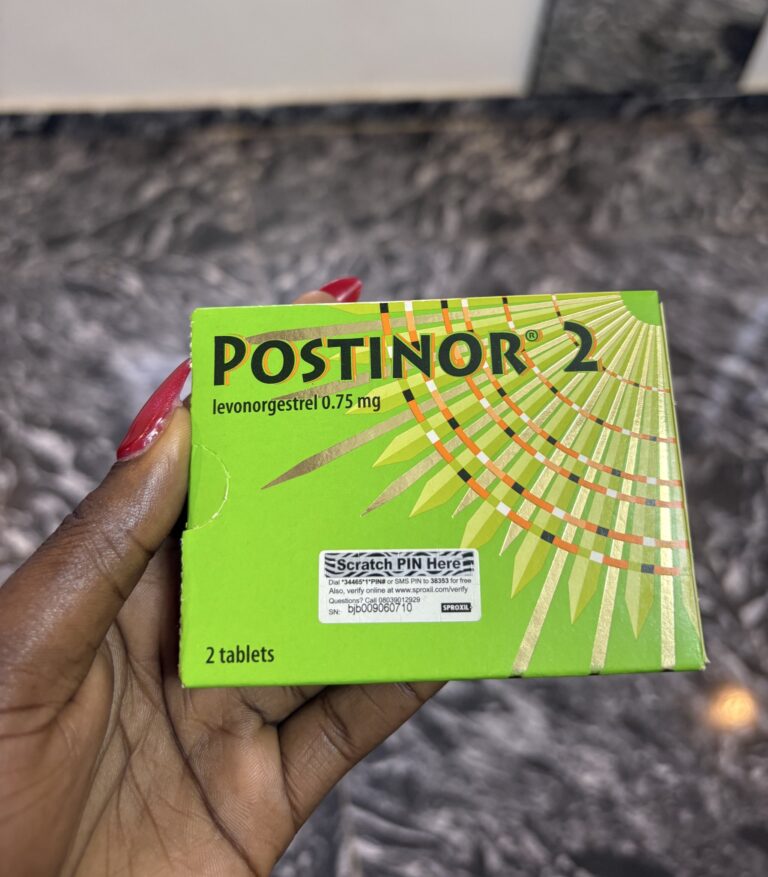The National Agency for Food and Drug Administration and Control (NAFDAC) has issued a public alert concerning counterfeit batches of Postinor-2 (Levonorgestrel 0.75 mg)—a commonly used emergency contraceptive—circulating across Nigeria.
In a notice released on August 26, NAFDAC confirmed that two falsified variants, labeled Type 1 (Batch T36184B, manufactured August 2024, expires August 2028) and Type 2 (Batch 332, manufactured March 2023, expires February 2027), are not products imported by the authorised marketing holder, the Society for Family Health (SFH).
The agency highlighted unmistakable packaging errors distinguishing genuine from counterfeit products—such as a misspelt pin verification sticker reading “Veify” instead of “Verify” and the incorrect phrase “Distnibuted in Nigeria” on the pack.
NAFDAC warned of grave health risks posed by the fake products, which could contain harmful ingredients, incorrect dosages, or be produced under unsafe conditions. Possible consequences include contraceptive failure, toxic contamination, unpredictable reactions, long-term reproductive damage, or even death.
As part of its response, NAFDAC has ordered zonal directors and state coordinators to intensify market surveillance and remove the falsified batches nationwide. Consumers are urged to buy Postinor-2 only from licensed pharmacies and to carefully examine packaging for authenticity before use.
Healthcare providers and the public are encouraged to report suspected counterfeit products or adverse side effects via NAFDAC’s toll-free number 0800-162-3322, email at sf.alert@nafdac.gov.ng, or through the Med-Safety mobile app and online e-reporting platforms.
To assist verification, NAFDAC provided reference details for the original product: Batch number T32458H, manufactured February 2023, expiring February 2027, with registration number 04-6985.
The agency’s alert has also been forwarded to the World Health Organization’s Global Surveillance and Monitoring System (GSMS), reinforcing global efforts to combat counterfeit medications .
In summary, NAFDAC’s public warning underscores the critical need for vigilance against counterfeit medicines, particularly those affecting sexual and reproductive health. Nigerians are advised to remain cautious and ensure their medicines are sourced from reputable and verified vendors.

